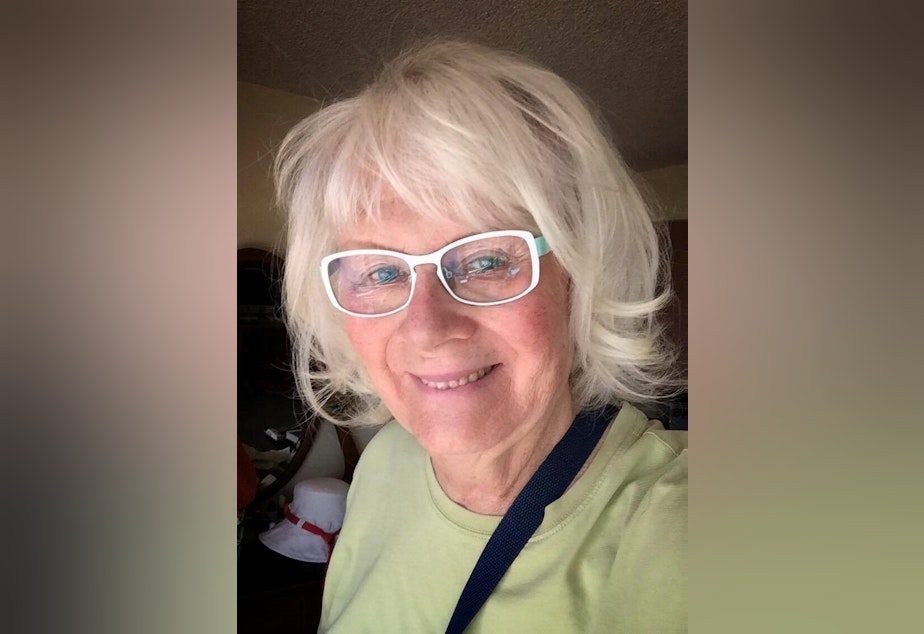I’m 72, transgender, a veteran. Trump’s tweet gave me reason to fight

This might come across as whining, but I don't really care.
I deactivated my Facebook account Wednesday after I read that President Trump was kicking all transgender people out of the military. I wanted to step aside and become invisible, but I have something to say, so I came back to write this:
When the president announced he would ban all transgender people from the U.S. military, it was a crushing blow. I joined the National Guard at 17, right out of high school. I always accepted that I had a job to do, and if called (I was almost deployed to Cuba and/or Berlin in the days after my 18th birthday), I would honor my allegiance to the country and the military in which I served.
Many of my friends and classmates went to Vietnam, and some died. My service was minor compared to theirs, but I took it seriously. I believed in God and country back then, and my Guard unit trained every other Saturday and Sunday while I was in college, knowing we needed to be ready to ship out to Nam at a moment’s notice.
No one knew I was transgender back then, not even me. I didn't know what that was in 1962, but I knew something wasn't right. I knew I didn't fit in anywhere in my life.
Sponsored
When Trump wrote that tweet, it was devastating for everyone who has ever served, for everyone who has had to fight, for everyone who had to face the responsibilities which the military requires—those words told us that your military, your president and your country, which requires so much from you, does not have your back.
Those words said to every transgender person in this country, in the world, whether military or not, you are not worthy. They said to transgender soldiers that what they have done for their country doesn't matter. They also, I believe, excite the haters to further vilify trans people and intensify the hate. At least that's what it feels like.
When I sold my car recently, my wonderful Mitsubishi that was serving me well, and decided I needed to economize and walk or take the bus, I learned quickly that as a trans woman, I had to try to become invisible.
Every day I would receive an intense stare from someone, and often it did not look friendly. I started dressing androgynously and wearing a hat (I hate wearing hats) with a bill that I could pull down so that people couldn't see my eyes and make eye contact. Sometimes I would walk with my hands clenched into fists in my jacket pockets, ready for a fight, knowing that if I got knocked down, it would be hard to get back up (age does that to you). These were acts of preservation: Ride the bus a while and get stared at enough and sometimes talked about by people who know that you can hear their conversation and you'll understand.
This was not so apparent when I could just go to my car and drive home.
Sponsored
Yesterday after Trump’s tweet, I wanted comfort food. I feel relatively safe close to home (except when it's dark) and I walked to Ballard Market, my neighborhood grocery store. I bought a soda and some chips and sat at a table in the small eating area out front. After a few minutes, I felt someone’s eyes on me. I looked up, and at a table nearby was a young couple. The man stared at me and said something to the woman with him. She looked at me and they both laughed. Welcome to my world — the world of every one of those soldiers who were told this week they don't matter.
I have been studying, meditating and praying but keeping to myself these last two days. Within a half hour of reading Trump’s tweet, I deactivated my Facebook account. I have been trying even harder to be less noticeable, to be as invisible as possible, which is hard when you’re 5'10 and 204 lbs.
Then it occurred to me: What Trump said should be taken seriously, but I don't have to accept his message. I have read numerous articles about how supportive many people and politicians are of transgender people. I thought, too, of my spiritual community and my family, which fully shows me love and support. I also remembered there are some, many in the military and probably some, but not all, from my senior citizen community who are supportive (in their I-don't-want-to-talk-about-it way) and I thought, wow, how lucky I am, how respected I feel, how gracious most of people in my life are.
We are moving forward, we are making progress, and maybe when this is all done, we can be the model of acceptance for the world.
And now I feel like a fight. I've never been very courageous and sometimes can't think clearly in a confrontation, but I can find a way to fight back by giving, for all of us. I have so little, but I know I can give, and that will probably be the fight of my life, and I don't even know how to do that—yet!
Sponsored
The Seattle Story Project: First-person reflections published at KUOW.org. To submit a story or note one you've seen that deserves more notice, contact Isolde Raftery at iraftery@kuow.org or 206.616.2035.
